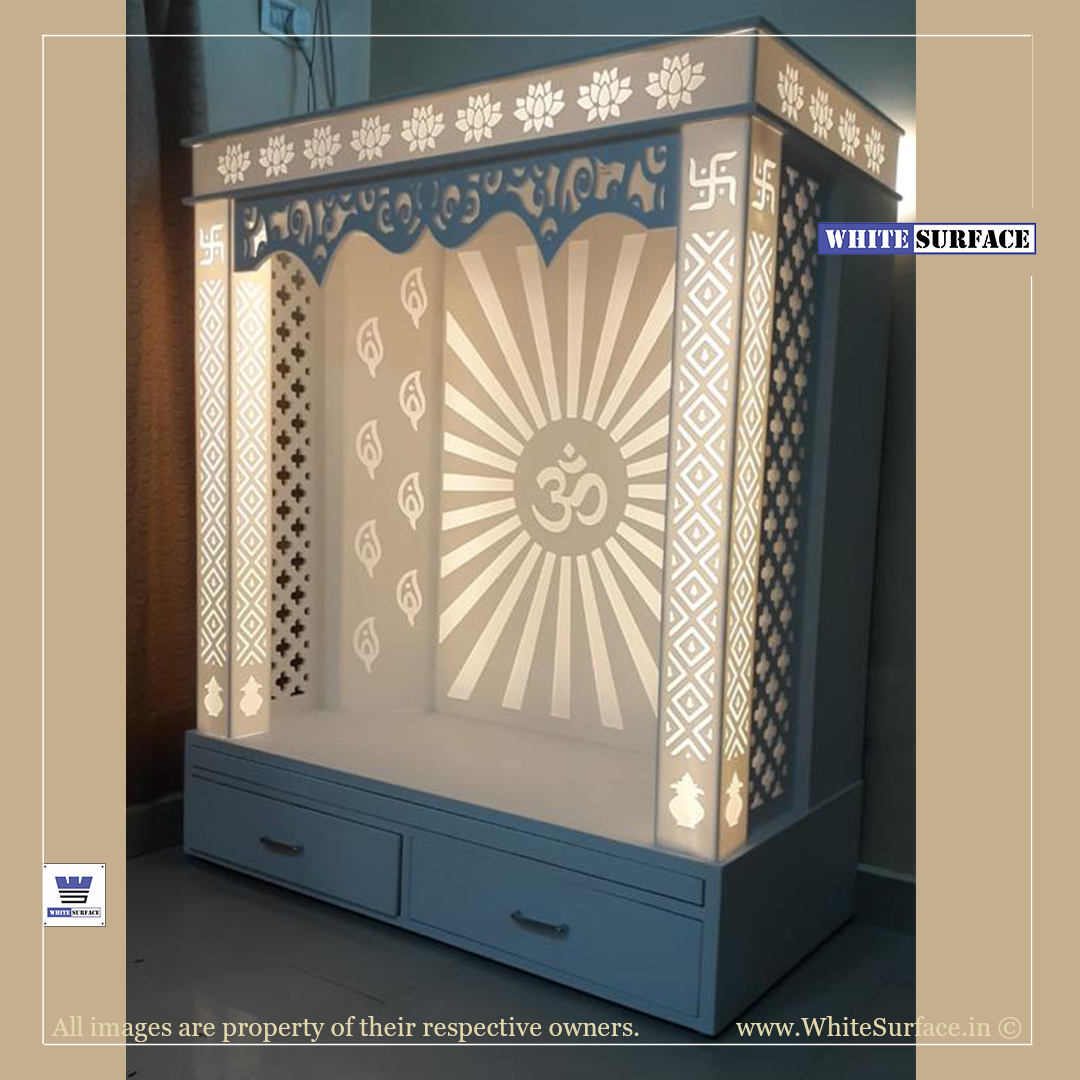Corian countertops or Granite in kitchen Granite is a natural rock found underground formed by volcanic activity under high temperatures. On the other hand, Corian is an artificially created material made with acrylic polymers and bauxite and introduced by DuPont. Both of these materials are highly different from each other, and both have some Pros and Cons attached to them. As a buyer of these countertops, one must aim for Return on Investment, longevity, and match the overall vibe of your space. White Surface, brings you key points you must take into consideration before choosing your countertops for home:
- Aesthetics: it is well said, ‘home is not a place but a feeling’ to make and elevate your home to a feeling; your place must be ‘your style’ and should reflect who you are. The kitchen is the heart of every home, and thus choosing the right countertop is essential. Granite is a natural stone. It has a natural colour and flaws, while Corian comes in a wide variety of colours and finishes from matte to super glossy. It also comes in various textures, and we associate a feeling with it. At the same time, a Solid surface gives a buttery touch to the counter that makes the top irresistible to touch again & again. At the same time, some people might like the natural finish of Granite. Therefore, as a matter of aesthetics, it is based on the customer’s preference and liking. However, for a premium finish, a solid surface will always stay ahead of any material.
- Seamless: Granite being a natural stone, does not have properties of malleability or bendability and thus has sharp edges to it, and all its joints are also visible. Corian, however, can be thermoformed into various shapes and does not have any visible joints at all. It can be shaped in many ways, from the sharpest to the curviest designs. No matter how you design your Kitchen top, with Corian there will be no joints. The entire surface will be one piece. Here Corian takes the upper hand when it comes to being seamless and leaving no joints.
- Repairable: being repairable is a part of being durable. Once dented or cracked, Granite cannot be restored to its original form and has to be replaced. Which again costs a hefty sum of money. Corian is repairable, and thus, there’s no need to replace your countertop when you can repair it back to normal. After years of use, Corian also doesn’t tarnish; a little buffing makes it completely new. Thus, in the matter of reparability, Granite has a disadvantage over Corian. Corian can be repaired while Granite can’t be.
- Stain-resistant: Granite seems solid but is a porous material and gets stained considering the regular usage of spices in Indian homes. Corian is nonporous and does not get stained. Removing tough stains is just a matter of seconds on Corian. One should use warm soapy water to remove dry stains. Granite also gets etched when it comes in contact with acids leaving dark marks on the stone. Frequent application of sealants on granite surfaces needs to be applied. Otherwise, it tends to absorb liquids. Corian is not vulnerable to etching from acidic substances. It also doesn’t require any sealant because it is naturally nonporous, i.e., it doesn’t let liquids pass through in nature. Corian again has the edge over Granite on the porosity of materials.
- Heat & water resistant: Corian is more water-resistant than Granite and does not absorb moisture. However, Granite is more heat resistant and does not get scorched by hot pans. An easy way to deal with this is that one should use coasters, hot pads, and trivets while placing hot utensils on a Corian worktop. Even if Corian gets scorched, it can be brought back to its original state by buffing. When it comes to being durable to heat, Granite wins as Corian is less durable to heat above certain temperatures. However, Granite is porous and needs regular sealant application, making it not so practical for kitchens, and Corian being nonporous, has an advantage over Granite.
- Installation: Granite is more challenging to install than a natural stone. It requires a fabricator to take exact measurements and cut them accordingly carefully. In contrast, Corian is a little easier to install as even if the size goes wrong, it can be joined to the required size, leaving no trace of joints. However, Solid Surface Corian installation is no joke & therefore requires experts to do the same & for that White, Surface can be your first preference. Here our verdict will be that the Corian top will be more useful, as one can get the finish they require in the same sheet. Whether it’s matt, semi-gloss or high gloss, no need to select a different option.
- Kitchen lighting or Bar counter in a home is in trend these days wherein neat continuous lights are installed below the top sets a mood for the night. Corian being translucent, helps us install lights under the kitchen countertops, while Granite does not provide us with that flexibility. It also gives our space a hint of luxury, and it is a timeless style with the most refined design. Why waste money at a bar when you have your mini bar installed at home! Thus, Corian helps us add that modern touch to our homes and gives lighting flexibility on countertops.
Our comparisons of the two materials lead us to conclude that Corian is by far a better preference than Granite as the only basis wherein Granite weighed more than Corian was its durability to heat. If you are looking for a more suitable material for your kitchen with a premium look, hygienic surface and good return on investment, then Corian is your first choice.









